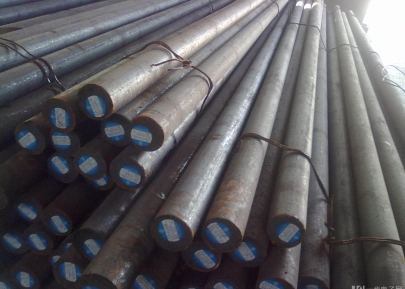Fundamentals of Stealth in *Stellaris*
In the grand cosmic tapestry where fleets clash and empires rise and fall, mastering stealth is a nuanced skill often overlooked but incredibly potent. This guide delves into the depths of *Stellaris*' intricate mechanics to unveil the mysteries of cloaking technologies and how to use them to your fullest advantage.
Cloaking enables certain ships — typically spies and raiding frigates — to operate outside conventional warfare. Their ability to remain undetected opens new tactical possibilities: surprise attacks on poorly defended planets, strategic intelligence extraction, or bypassing entire enemy defense networks entirely.
Key Points for Cloak Utilization:
- Raid compositions can become nearly uncounterable, if designed with proper synergy between ship classes.
- You don’t need overwhelming force to secure critical objectives; sophisticated cloaked infiltration makes this possible cheaply.
- Certain civics (e.g. Xenophile Espionage Archivists) synergize exceptionally well by offering extended cloak times, improved detection, etc.
| Mechanic | Effect | Brief Explanation |
|---|---|---|
| Sabotage Operations | +25% Success Chance when hidden | Perfect for dismantling supply lines or crippling station defenses |
| Lure Events Triggered | Hides true identity of hostile fleets via false contacts | Extremely useful during diplomatic tensions or cold war situations |
| Pirates Detection Modifiers | Varied values per cloaked hull type | Pirate-hunting builds may focus more heavily on frigate-grade stealth than cruisers or dreadnoughts |
Stealth Mechanics Explained
Cloaking is not an "invisible shield" that grants eternal evasion. Rather, it's a temporary state governed by a few variables that can drastically change its effectiveness.
The moment a ship cloaks, visibility plummets — but detection depends on both active sensors used by nearby enemies, as well as passive signatures such as system interference, recent battle debris (known colloquially as “sensor residue"), and warp lane distortions generated by hyperspace movement patterns near wormholes or unstable anomalies.
Remember: just because something is cloaked doesn't mean you’re immune to sensor sweep technologies like advanced graviton scanners— experienced players always prepare their counter-stealth contingencies early.
Detection Factors Table
| Cloak Strength | Cloaked Sensor Strength Requirement | Description / Application Tip |
|---|---|---|
| 10 | 18+ | Marks baseline cloaked operations (basic destroyers/spies). |
| 19 | 76+ | Aim higher in contested territory—enemy science stations likely run +20+ sensor sweeps. |
| > 30! | 150+ | Built-in AI detection immunity vs. standard military units! Consider investing here against large foes relying solely on traditional navy. |
Fleet Design for Covert Domination

Proper shipbuilding involves choosing the correct module layouts and augmentations optimized around maximizing stealth performance, particularly in combat-ready configurations. Ships must balance offensive punch with durability under ambush situations, ensuring the target does not get ample opportunity to retaliate.
- Select hull size: Lighter frigate-sized hulls are best suited due to superior maneuverability
- Minimize thermal signature output — reduce reactor waste emission by selecting low-output engines (exothermal drives, fusion thrusters work)
- Evaluate impact of armor weight – excessive armor adds unnecessary emissions that easily betray stealth status during high-heat scenarios like asteroid belt traversal.
Campaign Applications
Advanced Strategies and Tactical Surprise
Have you tried deploying strike teams into jump lanes right before major invasions?This works best:
- When opposing AI fleet reaction logic lags due to processing bottlenecks caused by managing too many simultaneous systems.
- You want your cloaked forces inside or along adjacent wormhole entries, ready the minute the assault starts to trigger chaos in reserve deployment sectors.
Certain ascension paths dramatically increase these effects further — notably the Psionic Affinity or Machine Intelligence traditions which unlock detection bypass upgrades. These enhancements allow fleets cloaked at higher levels to evade detection from almost every common military scanning method.
Click here: How do AI Opponents handle cloaked intrusions?
The behavior differs slightly across patch versions and selected difficulty settings, but generally speaking:- Navy AIs rely on automated detection systems — they react sluggishly compared to custom-designed manual countermeasures deployed by players with strong sensing tech
- Diplosims or peaceful races have lower priority in updating sensor coverage, leading to frequent lapses that allow infiltration deep within sovereign zones without notice
Cloak Breakdown: Best Hull & Module Builds in v3.7
| Component | Tier | Build Synergy |
| Silent Propulsion Core | Tier 3 - Advanced Cloak Boosts +30% | Reduces warp lane disruption trails significantly |
| Dampener Node Shield | Experimental Tech Unlock (Year ~1450s) | Can render destroyer-grade cloaking invisible unless under gravitic analysis beam lock-ons. |
To Conclude,
mastery over cloaking technology in *Stellaris* doesn’t require brute-force optimization. What separates novice shadow-fleet users from veteran space tacticians isn’t raw firepower or economic strength, but rather **timing, positioning, and understanding sensor mechanics better than any opponent**.Cloak-based victories often hinge less on who has more capital, and much more:
- Which admiral understands the limits of passive scanner resolution fields best?
- Who built the stealthier core command fleet?
- Most importantly—who invested in counter-sensor development before launching decisive offensives?



